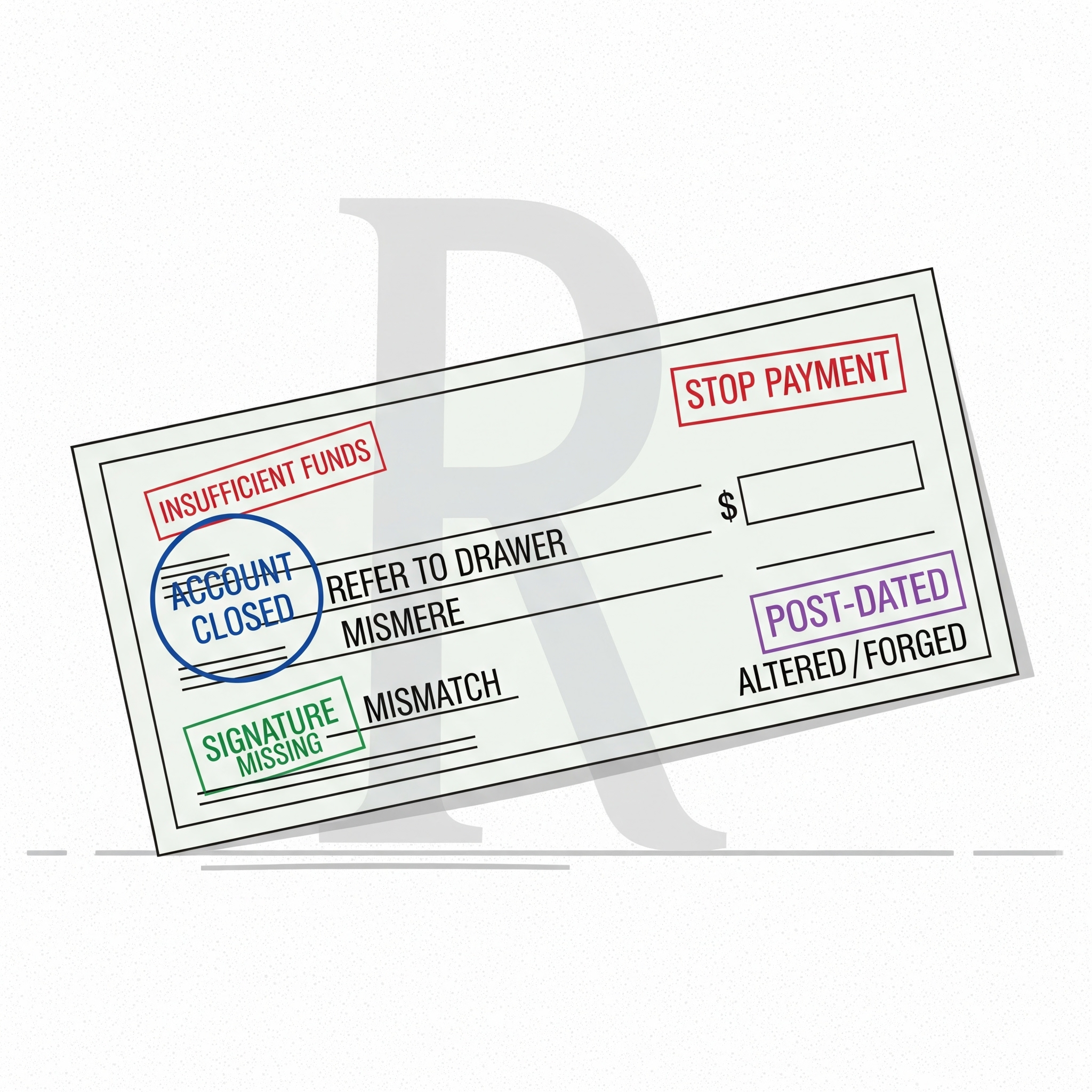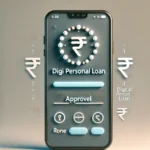Cheques are still a popular way to transfer money, especially for businesses and large transactions. However, sometimes a cheque can be returned or dishonored by the bank. This means the bank refuses to process the cheque, and the payment does not go through.
There are many reasons why this can happen. In this article, we will explain 39 common cheque return reasons used by banks, along with simple explanations. Understanding these will help you avoid cheque-related problems in the future.
Top Cheque Return Reasons Explained
- Payee’s Endorsement Required
The person receiving the cheque (payee) must sign the back of the cheque. Without this endorsement, the bank will not process it.
- Payee’s Endorsement Irregular
The endorsement (signature) is incorrect, smudged, or doesn’t match the bank records.
- Crossed to Two Banks
The cheque has been crossed to more than one bank, which is not allowed.
- Specially Crossed to a Bank
The cheque is marked for a specific bank but presented at a different bank.
- Not Arranged For
The account holder did not make arrangements with the bank to honor the cheque.
- Refer to Drawer
The bank cannot process the cheque and suggests contacting the person who issued it.
- Full Cover Not Received
The required funds or documents have not been received by the bank.
- Exceeds Arrangement
The cheque amount is more than the overdraft or credit facility allowed to the account holder.
- Effects Not Cleared – Present Again
The funds are still being processed. The cheque can be presented again on a later date.
- Signature Mismatch
The drawer’s signature on the cheque does not match the one in bank records.
- Drawer’s Signature Required
The cheque was not signed by the account holder.
- Incomplete Signature
The signature is incomplete or not properly done.
- Withdrawals Stopped – Death/Insolvency
The account is blocked because the account holder has passed away or is declared insolvent.
- Payment Stopped by Drawer
The account holder requested the bank to stop payment for that cheque.
- Payment Stopped by Court Order
The court has legally stopped the cheque payment.
- Alteration Needs Drawer’s Signature
If there is any change in date, amount, or words, it must be signed by the account holder.
- Cheque Post-Dated or Outdated
Post-dated: The cheque is issued for a future date.
Outdated: The cheque has expired (usually after 3 months).
- Mutilated Cheque
The cheque is damaged or torn and requires bank approval to process.
- Incorrect or Illegible Protective Crossing
The protective crossing information is wrong, missing, or unclear.
- Account Closed
The account from which the cheque was issued has been closed.
- No Advice
The bank provides no extra explanation for returning the cheque.
- Payee’s Name Required
The cheque must have the payee’s name clearly mentioned.
- Not Drawn on Us
The cheque does not belong to the bank where it was presented.
- Collectable at Par – Present at Counter
The cheque must be collected directly at the counter of the issuing bank.
- Extraneous Matter Found
The cheque contains unnecessary writing or irrelevant content.
- Signature/Authority Not Updated
The bank has not received updated authorization to operate the account.
- Thumb Impression Needs Attestation
If the payee uses a thumb impression instead of a signature, it must be attested by a magistrate or banker.
- Clearing House Stamp Missing
The required clearing house stamp is not on the cheque.
- Funds Insufficient
The account does not have enough balance to cover the cheque amount.
- Endorsement Needs Bank Confirmation
The endorsements on the cheque must be verified by the collecting bank.
- Opening Balance Insufficient
The account did not have enough money at the start of the day to process the cheque.
- Encoding Error
The MICR or digital encoding on the cheque is incorrect.
- Amount in Words and Numbers Differ
The amount written in words and figures do not match.
- Present Through Proper Bank
The cheque must be presented through the correct bank branch.
- Outstation Limit Exceeded
The amount is beyond the allowed limit for outstation cheques.
- Payable at Specific Branch
The cheque must be deposited at a specific branch mentioned on it.
- Re-Validation Required
The cheque has expired and must be revalidated by the issuing bank before presenting again.
- Account Frozen
The account is frozen due to legal or regulatory issues, such as fraud or court order.
- No Advice – Present Again
No explanation provided, but you can try presenting the cheque again later.
How to Avoid Cheque Return Issues
- Always maintain enough balance before issuing a cheque.
- Double-check signatures to ensure they match bank records.
- Avoid overwriting or making corrections on cheques.
- Write clear and matching amounts in both words and figures.
- Issue cheques to the correct payee name.
- Don’t issue post-dated or outdated cheques.
- Keep your account status active and updated with the bank.
Final Words
A returned cheque can cause inconvenience and even legal trouble in some cases. By understanding these 39 cheque return reasons, you can issue cheques carefully and ensure smooth transactions. Always handle cheques responsibly to maintain trust and avoid financial penalties.









